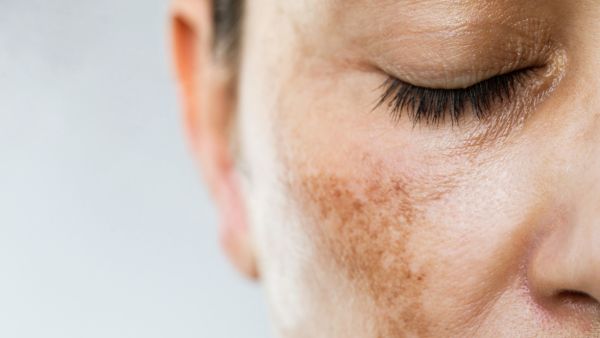Dew Bean, a Non-Irritating Botanical Alternative to Traditional Retinol Use
When formulating our best-selling Aspen Dew Illuminating Essence, we researched every possible ingredient that could be a whole-plant alternative to traditional retinoids. Analysis landed Vigna aconitifolia, commonly known as dew bean.
This humble legume is undeniably the best solution to increase cellular turnover with no irritation.
Dew bean extract is a functional analog to retinol helping to promote skin renewal through similar biological pathways.
Research shows that topical applications of dew bean actually accelerated skin cell turnover more effectively than topical retinyl palmitate.
This natural extract penetrates deeper skin layers, working to support collagen production, reduce the appearance of fine lines, and deliver better results than what you might expect from prescription skincare.
Now you'll see dew bean pop up as a key ingredient in new products, as other companies jump on the bandwagon. We love this confirmation of a good discovery!
"Aspen Dew and The Purist have been my go-to products for the last year. I religiously apply one pump each morning and night post cleansing. I have enjoyed smoother, hydrated, and less wrinkled skin as a result. Love my results.” Mary C.
Aspen Dew Illuminating Essence is added to the cart on almost every order. It works synergistically with our serums to provide complete skin care.
Why we love dew bean in our Aspen Dew
Aspen Dew Illuminating Essence is a one-and-done composition for smoother skin immediately, now, and in the long run.
This essence provides skin renewal without sensitivity. A generous concentration of clinically proven dew bean delivers immediate, visible results.
Dew bean is a protein and vitamin A-rich legume that replaces conventional retinol which can cause peeling, and sun sensitivity. The exfoliating and smoothing effects are further enhanced by its ability to retain moisture, earning this legume its luscious name.
While dew bean polishes and plumps, niacinamide and aspen bark extract are diligent working actives, gently lifting away dry skin, lightening dark spots, and inspiring cellular renewal.
Aloe vera, phytoceramides, and micro molecular hyaluronic acid ensure pillowy soft skin immediately and more so over time.
"The dew is wonderful, I can never have enough hydration and found this exceeded my expectations!" ~ Shari F.
One unique aspect is that our 99% unrefined, whole-plant ingredients are all recognizable because they are unprocessed. Many natural ingredients are processed into new ingredients (the ones you can't pronounce), but can still be marketed as natural.
Unprocessed ingredients are more bioavailable and, thus better absorbed than processed ingredients.
“The Aspen Dew stands alone beautifully, or it may be paired with The Alpine or Purist serums for amplified skin recovery, which is where the magic happens,” advises TellurideGlow’s Founder Mary Alice Heape. “We have a simple 2-step skin care program, which saves time and money without sacrificing results.”
The Aspen Dew Illuminating Essence:
- Promotes skin-firming collagen production
- Smooths and helps prevent fine lines
- Brightens and evens out skin tone
- Delivers dozens of water-soluble nutrients
- Deep, multi-level hydration
- Strengthens the skin
“Adding a moisturizer is not necessary after using the Aspen Dew coupled with one of the TellurideGlow serums. Adding moisturizer may be just a habit, as well as thinking we need special creams for the eyes, neck, day, night, and more,” Mary Alice adds. “But sunscreen, preferably without Oxybenzone, is a good practice.”
Continue reading


